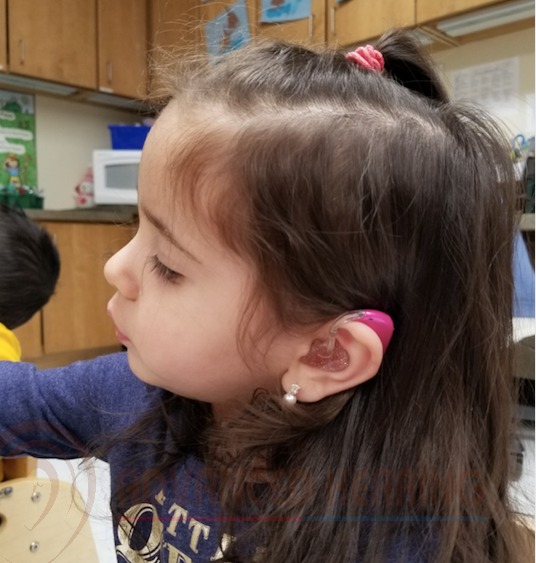Hearing is one of the things many of us take for granted. It plays an enormous role in our lives. Yet, as long as it works we tend to forget that it is there. From birth, we develop language by distinguishing between meaningful speech sounds and environmental noise. A hearing loss reduces these skills. Fortunately, we know more about hearing loss than ever before and a lot can be done to help.
Why Hearing is so Important
Children use their hearing ability to develop their language skills in order to communicate. But a hearing loss can make communication difficult. This chapter focuses on the importance of hearing, and how we depend upon it.
Developing language:
We start to develop language from the moment we are born. At first, babies only make crying, sneezing, yawning,
and coughing sounds. Even though they haven’t yet learned to talk, they are constantly listening. A newborn baby can soon recognize its mother’s voice.
If a child has a hearing loss the basic development of language will often be delayed. However, children with mild to severe hearing loss can develop understandable speech with the right intervention and amplification.
Research has shown that many children with a profound hearing loss can also learn to speak if they are diagnosed relatively early. They often are, because the signs of hearing loss are more obvious than within the milder categories of hearing loss. So the earlier the hearing loss is detected and the earlier it is treated, the better the prognosis for language development. With today’s technology, children can be fitted with hearing instruments within the first few weeks or months after birth.
First, they need to be fitted with the right kind of hearing instruments. Then they can start special speech and language therapy right away.
If the hearing loss is so profound that even very powerful hearing instruments don’t help, your child can still learn to communicate using specific communication techniques. Whether you choose a specific communication technique or a spoken language, the message is clear: the earlier your child starts, the better.
Hearing aids and accessories for children
You want the best for your child, and so we bring all brand children hearing aids at one place at one go. For over years we have dedicated ourselves to understanding the needs of children with hearing loss, allowing us to develop truly innovative and intuitive solutions that meet their specific listening needs.
Ready for success
Having solutions which cater to the specific listening needs of children with unilateral hearing loss allows them to focus on what is important – listening, interacting and learning.
Active participation in the modern classroom
The Roger for Education portfolio includes carefully designed products to suit every student and every situation. Complexity is no more and children can hear it all!
Importance of hearing aids for your child
If the audiologist recommends hearing aids for your child, it’s important that he or she wears them continuously, especially if the child is very young. Here’s why:
- From birth to three years, children’s brains are in a period of rapid development. Consistent sound input is critical for developing normal brain pathways for hearing, speech, and language.
- Early listening and speaking are vital to language development. But when first learning a language, we can’t exactly “teach” it to children the way one would teach a school subject. Instead, language is caught. Children pick up on words and spoken syntax and language structure by being exposed to language continuously. For children with hearing loss, this incidental learning will need to be supplemented by speech and language therapy that focuses on attending to this auditory input.
- Consistent hearing is important for children – especially infants and toddlers – in bonding with their parents. It builds trust and allows for the feeling of a predictable, consistent world.






